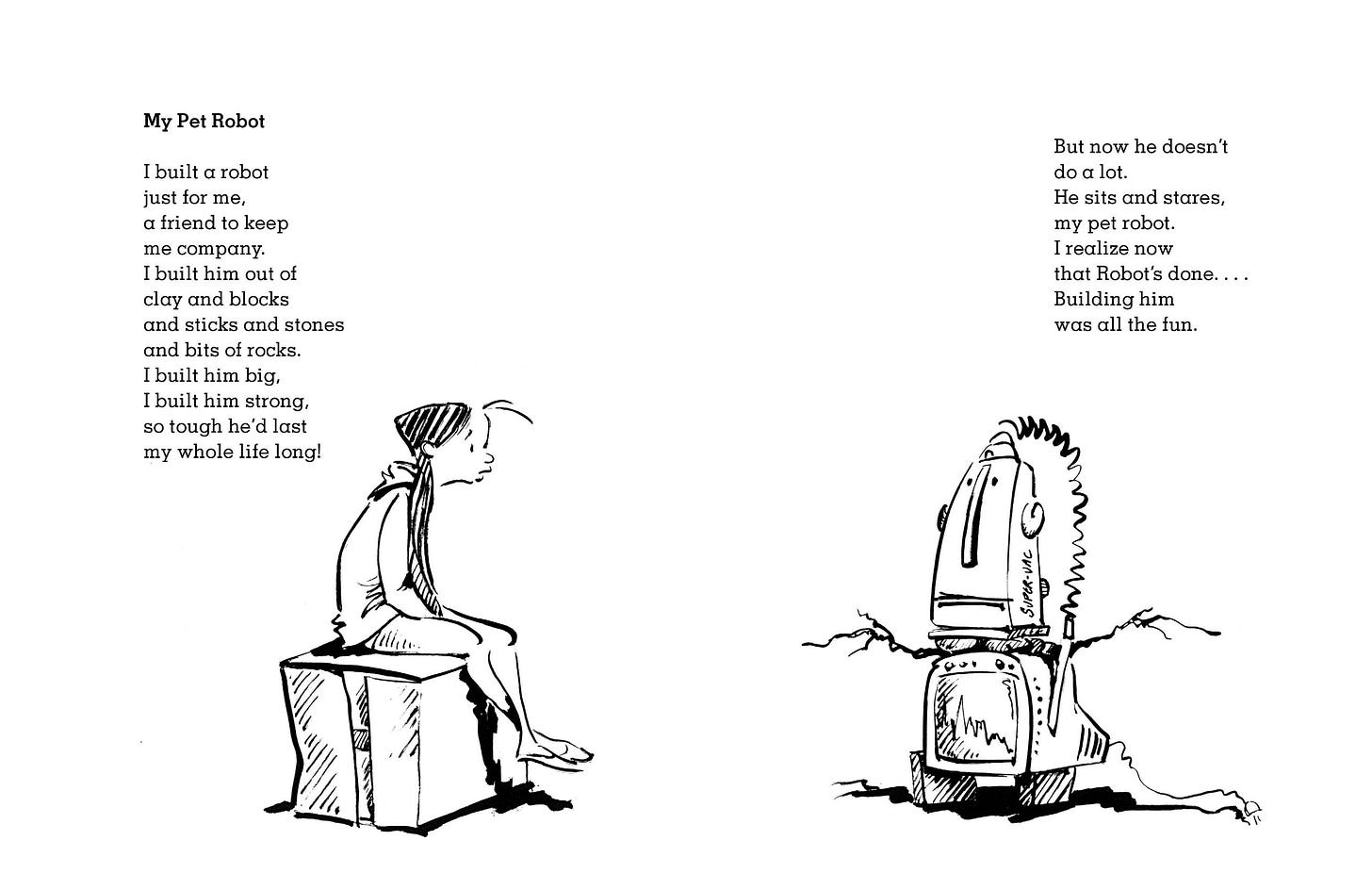Plays holder
Excuse the pun. Today’s newsletter hasn’t gotten the attention it deserves because we’ve been busy working on exciting playful learning things at Upepo! Excited for a future issue where I get to talk more about it!
This one, however, will be a listicle of some of my most favorite writings about learning and education.
Gears of My Childhood by Seymour Papert
“Before I was two years old I had developed an intense involvement with automobiles. The names of car parts made up a very substantial portion of my vocabulary: I was particularly proud of knowing about the parts of the transmission system, the gearbox, and most especially the differential. It was, of course, many years later before I understood how gears work; but once I did, playing with gears became a favorite pastime. I loved rotating circular objects against one another in gearlike motions and, naturally, my first "erector set" project was a crude gear system.
I became adept at turning wheels in my head and at making chains of cause and effect: "This one turns this way so that must turn that way so. . ." I found particular pleasure in such systems as the differential gear, which does not follow a simple linear chain of causality since the motion in the transmission shaft can be distributed in many different ways to the two wheels depending on what resistance they encounter. I remember quite vividly my excitement at discovering that a system could be lawful and completely comprehensible without being rigidly deterministic.
I believe that working with differentials did more for my mathematical development than anything I was taught in elementary school. Gears, serving as models, carried many otherwise abstract ideas into my head. I clearly remember two examples from school math. I saw multiplication tables as gears, and my first brush with equations in two variables (e.g., 3x + 4y = 10) immediately evoked the differential. By the time I had made a mental gear model of the relation between x and y, figuring how many teeth each gear needed, the equation had become a comfortable friend.
The gear can be used to illustrate many powerful "advanced" mathematical ideas, such as groups or relative motion. But it does more than this. As well as connecting with the formal knowledge of mathematics, it also connects with the "body knowledge," the sensorimotor schemata of a child. You can be the gear, you can understand how it turns by projecting yourself into its place and turning with it. It is this double relationship--both abstract and sensory--that gives the gear the power to carry powerful mathematics into the mind. In a terminology I shall develop in later chapters, the gear acts here as a transitional object….”
“...A modern-day Montessori might propose, if convinced by my story, to create a gear set for children. Thus every child might have the experience I had. But to hope for this would be to miss the essence of the story. I fell in love with the gears. This is something that cannot be reduced to purely "cognitive" terms. Something very personal happened, and one cannot assume that it would be repeated for other children in exactly the same form.”
SOME THOUGHTS ON THE REAL WORLD BY ONE WHO GLIMPSED IT AND FLED- Bill Watterson
Despite the futility of the whole episode, my fondest memories of college are times like these, where things were done out of some inexplicable inner imperative, rather than because the work was demanded. Clearly, I never spent as much time or work on any authorized art project, or any poli sci paper, as I spent on this one act of vandalism.
It's surprising how hard we'll work when the work is done just for ourselves. And with all due respect to John Stuart Mill, maybe utilitarianism is overrated. If I've learned one thing from being a cartoonist, it's how important playing is to creativity and happiness. My job is essentially to come up with 365 ideas a year.
If you ever want to find out just how uninteresting you really are, get a job where the quality and frequency of your thoughts determine your livelihood. I've found that the only way I can keep writing every day, year after year, is to let my mind wander into new territories. To do that, I've had to cultivate a kind of mental playfulness.We're not really taught how to recreate constructively. We need to do more than find diversions; we need to restore and expand ourselves. Our idea of relaxing is all too often to plop down in front of the television set and let its pandering idiocy liquefy our brains. Shutting off the thought process is not rejuvenating; the mind is like a car battery-it recharges by running.
More for later.
Do you know of any exceptional pieces of writing on learning and education you want to share with the community?
Prasanth


